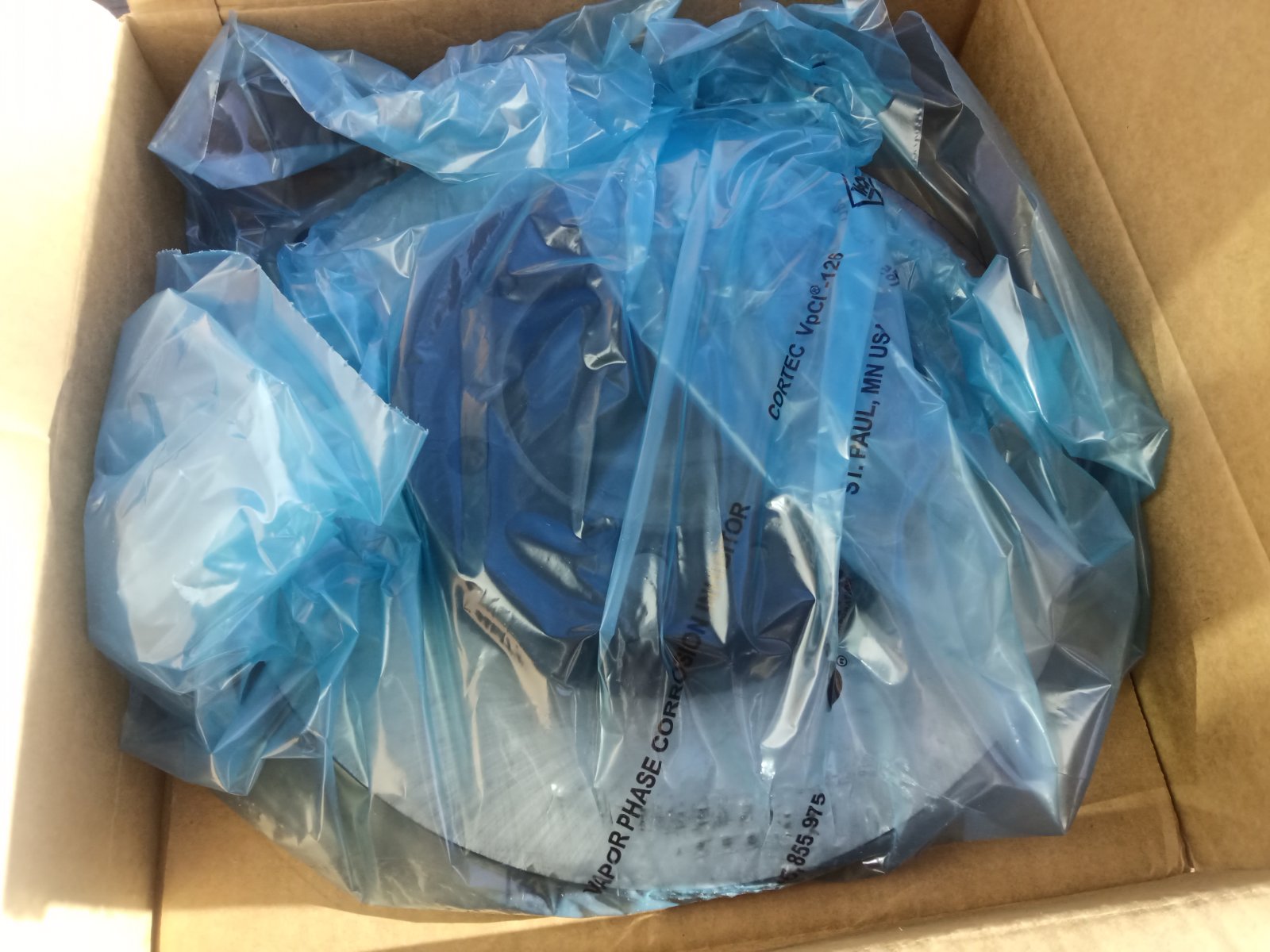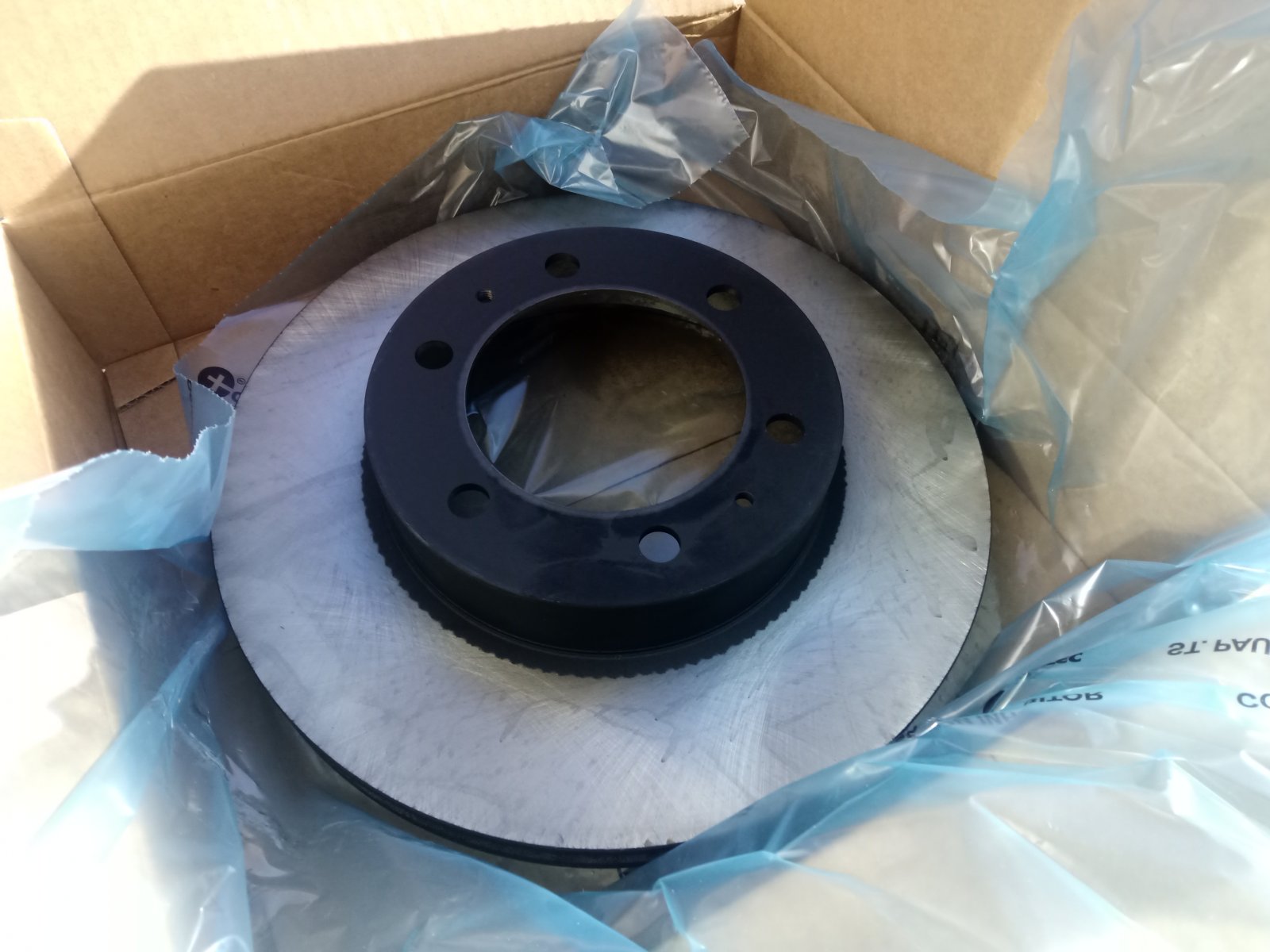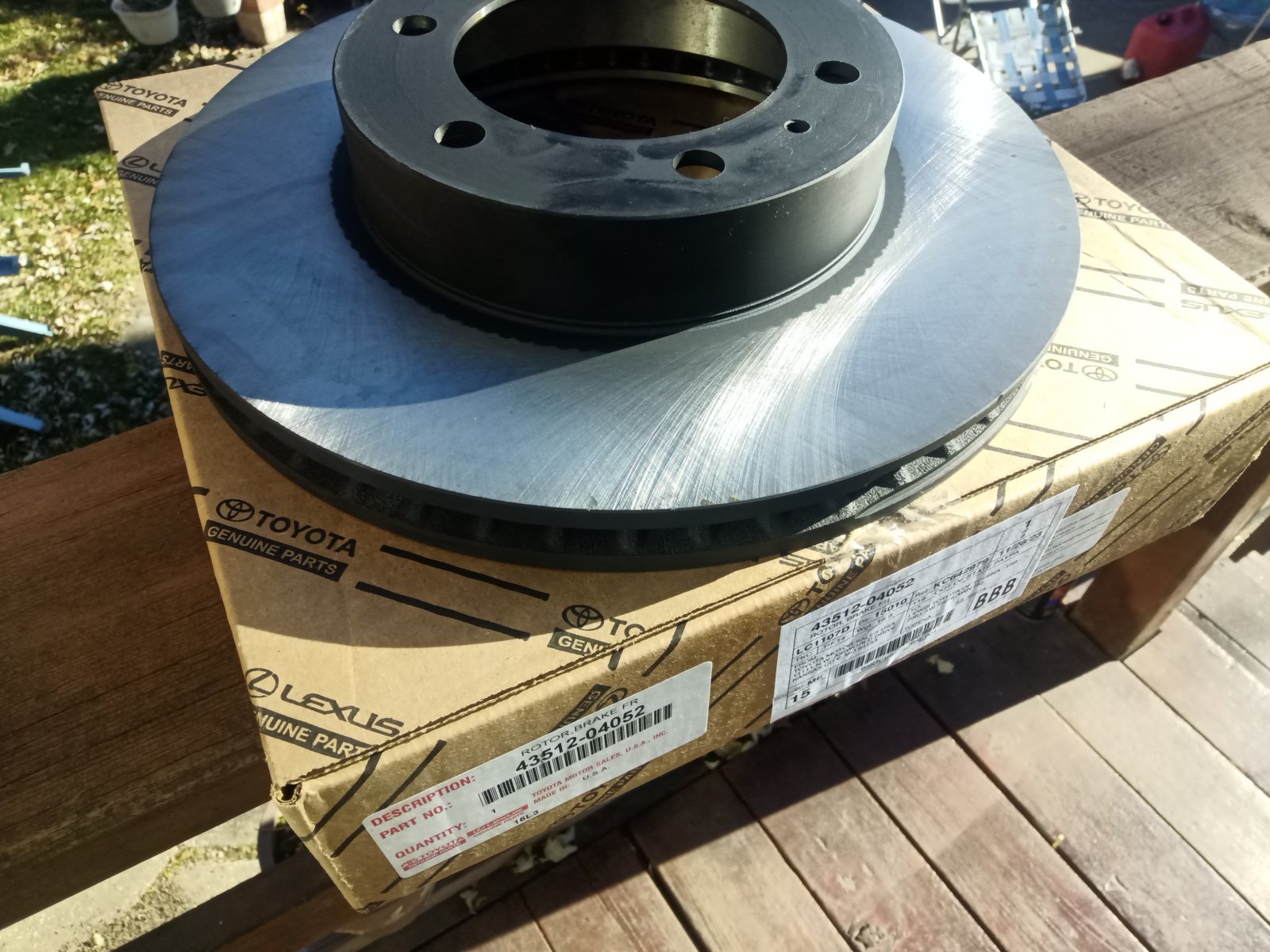I installed EBC drilled, and slotted rotors on my tundra with using the stock toyota ceramic pads. Big difference in pad life, and stopping when running with a loaded truck. At the time this was recommended by toyota, or do a land cruiser disc brake conversion.
Last edited:





